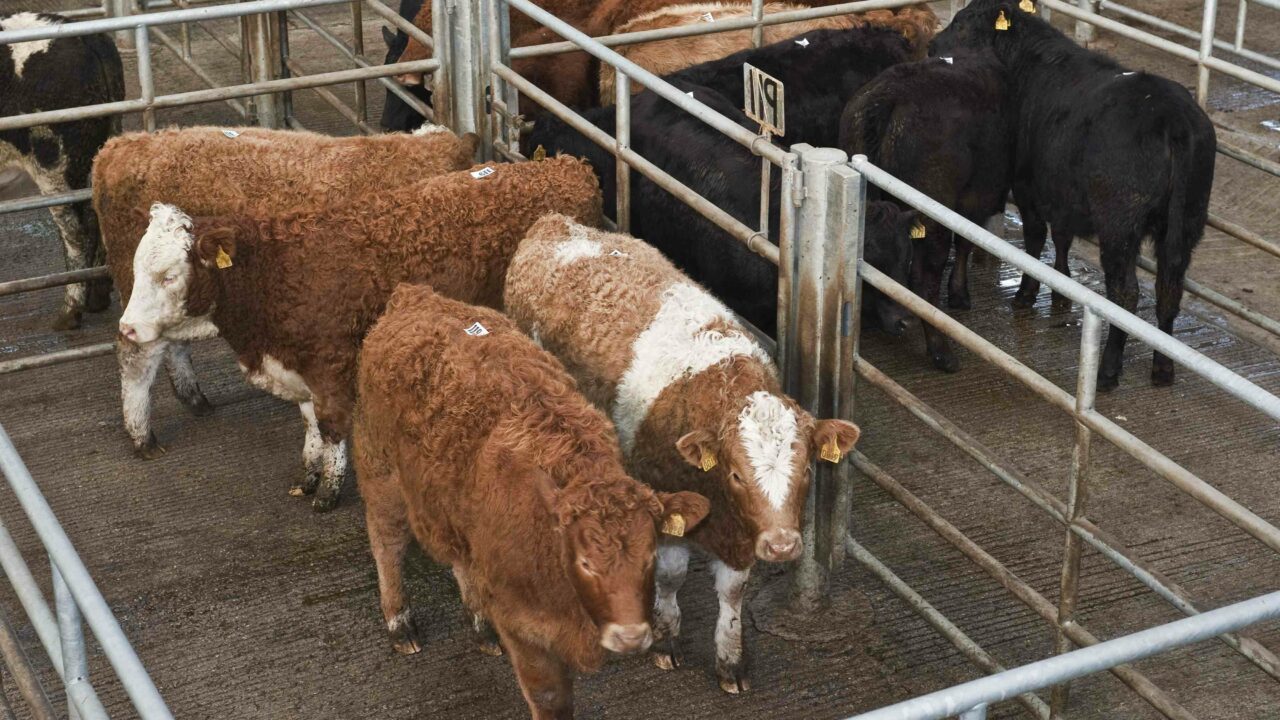Rationalisation and consolidation of marts, recent shipments of cattle and the traumatic consequences of the TLT International receivership for farmers and mart managers was discussed in detail this morning.
The Irish Co-Operative Society (ICOS) and representatives of all the major farming representative bodies spoke at a Joint Committee on Agriculture Food and Marine meeting.
The committee, which was chaired by Deputy Andrew Doyle TD, was updated on the current situation in regard to the receivership of TLT International and also focused on what safeguards are to be put in place to prevent a re-occurrence.
According to Seamus O’Donoghue, chief executive of ICOS: “The decision by HSBC to appoint a receiver to TLT international was a disappointment to the entire mart sector.
“Our view is while it is likely to put pressure on certain marts. The marts in question do have the capacity to absorb any losses that may emerge. TLT international’s turnover represents a small proportion of mart sales,” he noted.
According to O’Donoghue: “Our own estimates suggest that the exposure to TLT international receivership is between €3m and€4m.”
He stressed: “The provision of credit to certain purchasers of stock by some for our marts has been an ongoing challenge to the ICOS mart committee. The issue of credit policy has been the subject of numerous consultations and discussions and indeed regional meetings in the past 12 months.
“We seek to advise marts to move to a policy of not providing credit to purchasers of stock.” However he noted: “Given the structure of our mart sector and its history the acceptance of this policy was never something that was going to be achieved overnight.
“One of the observations of the marts committee is that it has been those parts of the country were there are large number of private marts and co-operative marts with single mart operations centres, competing with each other. That some mart boards have found it most difficult challenge to implement a prudent credit policy.
“The general caution being exercised by the banks in their credit policy has resulted in greater pressure from purchasers of stock for more liberal credit facilities.”
The ICOS ceo called for a consolidation of mart centres into one co-operative society with a view to achieving economies of scale. “Without some rationalisation and consolidation in some parts of the country marts will continue to compete with each other on the basis of the level of credit they are willing to offer.”
Irish Farmers Association (IFA) president John Bryan stressed the live export trade is critically important to the livestock sector in this country and cannot be underestimated in terms of creating price competition in the sector.
“The recent announcement that TLT International has been placed in receivership by its bank is bad news,” he noted. “The IFA has made it very clear that payments to farmers and marts must be prioritised to both the receiver and owner.
He continued: “The specific details of the liabilities to the TLT International are still not available from the receiver. There is urgent need for clarity on the extent of the creditors losses to TLT.
“What is known and is in the media is that HSBC bank is owed €3m and AIB is owed in the region of €750k. There are up to 30 marts, some owed large amounts some small. The number of farmers directly involved is unknown.”
Paul Smith of the ICMSA has note its organisation has received numerous complaints into our offices in the past number of weeks over the closure of TLT international.
“It is the ICMSA’s view that all these farmers must be preferential creditors when it comes to any assets. Farmers should receive payment up front when entering into contracts but obviously that is not always possible.
He continued: “Recently we have heard of shipments over the weekend and we would hope retention of title should be made to farmers that had animals included on these shipments.”
He also called for the Government to put forward key credit insurance “We would all like to see that not only from the farming industry but also the export industry at large. A Government-funded credit insurance scheme needs to be brought forward,” he stressed.
ICSA Ireland’s representative at the meeting was its president Gabriel Gilmartin. He said “For farmers the exposure is hugely traumatic and clearly it’s also a time of great stress for mart managers and committees.
“There has been a lot of talk on money owed to farmers and marts have been based on guesses.
“The hope is that the marts have been run properly for a number of years and they have the financial resources to survive this. Confidence in the marts is vital to the livestock trade. It’s important to emphasise that the marts affected continue to trade
“In the past few weeks it has been business as usual,” he noted.
“There will be lingering doubts that HSBC made its biggest mistake in extending credit in the first place or deciding to appoint a receiver too early,” he claimed.
“I believe the importance of the TLT closure has been underestimated. The directors of TLT have a base of customers over a number of years and there is no evidence that to suggest these relationships will be maintained by another Irish exporter.”
The ICSA Ireland president also predicted that a much more cautious line will be taken in future by marts across the country. “If the live export trade is undermined how much will the high quality weanling trade be affecting 2014.”
“Less live exports mean lower factory prices for sheep farmers. It will be this time next year before an accurate assessment can be made of its impact. The whole episode is a massive wake up to all of us.”
Generic image: store cattle penned in mart. Photo O’Gorman Photography
